Research shows that anxiety disorders impact our generation in extraordinarily high levels — affecting about 40 million adult Americans every year. And parents struggle with anxiety in higher numbers than others, typically because parents have more on their plate and less time for stress-relieving activities.
Marilyn Kravitz Gale, PhD, LCSW-C, who works in a private practice, says that modern parenting is riddled with stress due to a number of factors. Most of today’s families consist of both parents working, not to mention that parenting is full of details — carpools, daycare, soccer practice, tutoring and various medical appointments. Many parents are also dealing with marginal finances and the complexity of healthcare, so much so that, “Becoming a parent in this day and age is an act of faith,” Gale says.
While a fair amount of stress is a normal part of life, anxiety can become all-consuming. It can severely impact one’s quality of life and the people around them. If you’re a parent who thinks you may be struggling with anxiety, Gale says it’s crucial to address it. “Families are systems, and when one is hurting, the whole system is affected,” she says.
Here are helpful ways to get you started on calming your anxious mind.
Get Daily Exercise
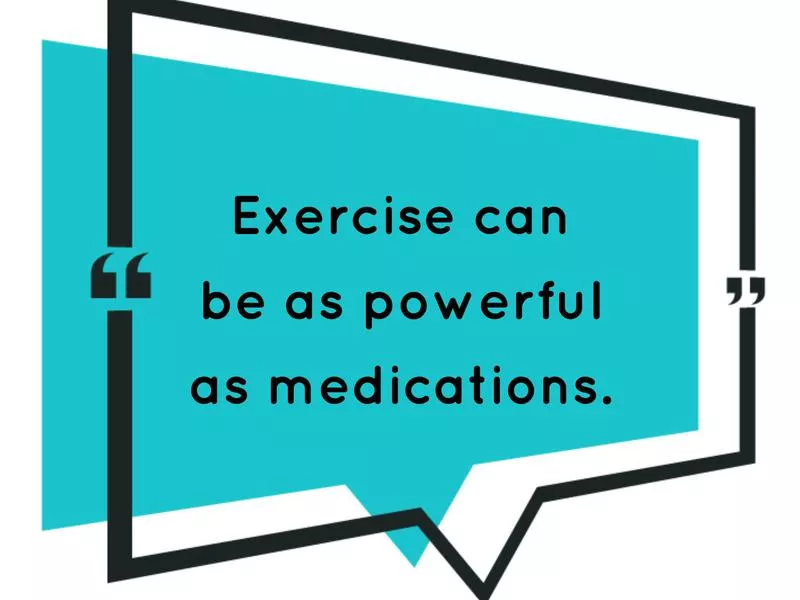
As a parent, it can be a challenge to find the time to exercise. And often, it feels like just one more thing to put on your already too lengthy to-do list. But if you manage to make daily exercise a part of your routine, your body and mind will thank you.
Endorphins, the feel-good hormones, are one perk of working out that will keep you coming back for more. Exercise can be as powerful as certain medications in calming anxiety, according to some studies.
Avoid Caffeine

Most of us need our daily caffeine boost to get going in the morning or to feel focused (I know I do). But too much caffeine can wreak havoc on our minds and bodies.
Caffeine is a powerful stimulant. For those who struggle with anxiety, it can lead to moodiness, jitters or feeling downright overwhelmed. Too much caffeine, especially in the afternoon, can also lead to sleeplessness. So, when it comes to sipping your daily latte, green tea or soda, make sure you know your limits and how you respond to the boost.
Avoid Alcohol
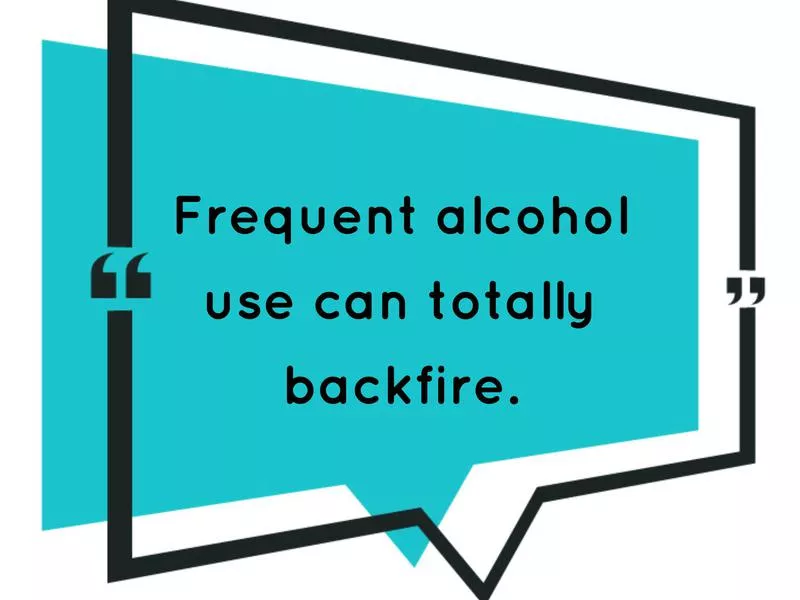
Likewise, while many of us (especially those who are prone to stress or anxiety) rely on a nightly glass of wine or two to take the edge off, alcohol can actually have the reverse effect. In the short-term, we might feel calmer after a couple of drinks, according to the Anxiety and Depression Association of America, but after just a few hours, even moderate consumption can actually increase your overall level of anxiety.
And those effects aren’t short-lived. They can last into the following day. In essence, frequent alcohol use can totally backfire, making your feel more anxious, not less.
Begin a Yoga Practice
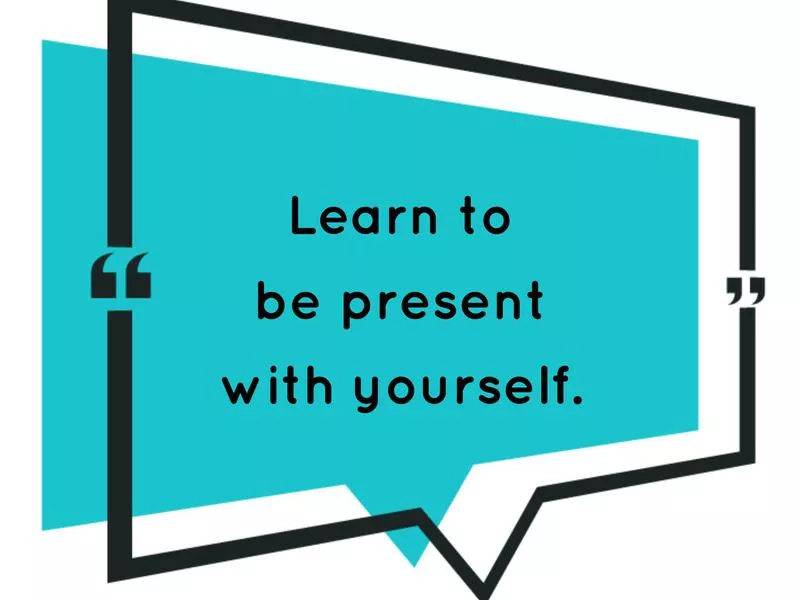
These days, yoga is almost constantly talked about as being a great tool for stress relief. While it’s not a cure-all, one of the most powerful aspects of yoga isn’t in the postures themselves, but in learning to be present with yourself and even in your own discomfort.
While the added benefit of exercising on your mat is a helpful component, the mind-body connection that yoga explores is widely touted by psychotherapists and doctors as being a great tool for anxiety and stress relief.
Certain types of yoga are particularly beneficial, such as Yoga Nidra (sometimes called sleep yoga), which is an incredible practice that focuses on calming the mind through breathing techniques and bringing your focus to different parts of the body, then letting go of any tension it may be holding.
Try Meditation
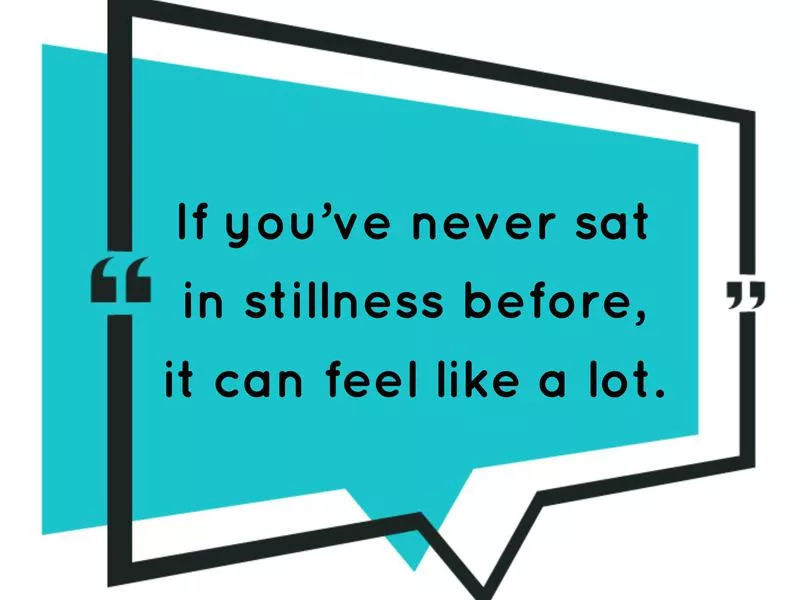
Like yoga, meditation can be life-changing when it comes to coping with stress and anxiety. Just a few minutes a day of quiet meditation — sitting in silence and clearing the mind — is said to help reprogram the brain to manage stress better.
For beginners, start seated in a comfortable position and focus on your breath for about 10 minutes a day. If you’ve never sat in stillness before, even this can feel like a lot. But the more comfortable you become simply observing your breath and letting go of thoughts that come into your mind, the more easily you’ll be able to quiet your thoughts, not only in meditation, but in daily life.
Use Calming Apps
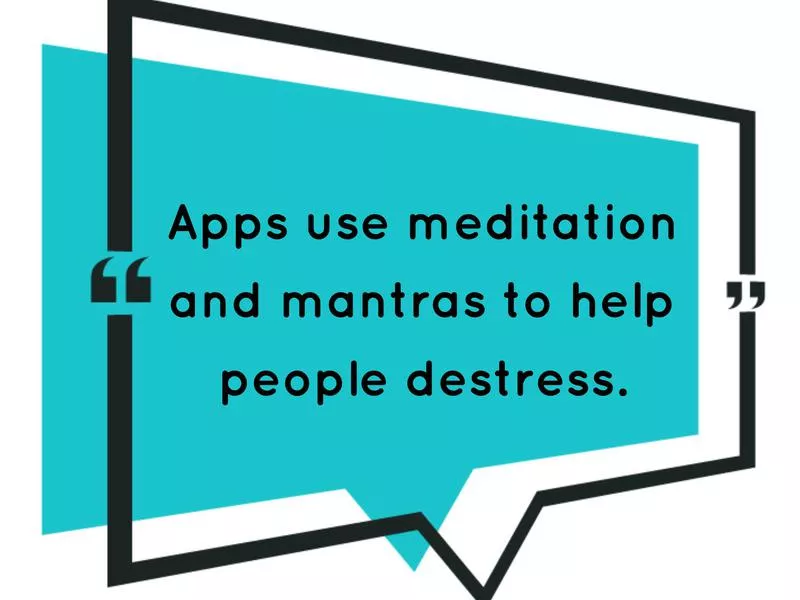
While therapy is a great (and often necessary) tool, there are many modern-day coping mechanisms that consumers rave about to help combat anxiety. Apps such as Calm and Headspace, among others, use techniques like meditation and mantras to help anxiety sufferers destress.
There are plenty of free apps to choose from, some which help curb anxiety and others that help you quiet your mind to go to sleep. So, test out a few and see what works for you.
Have Screen-Free Time
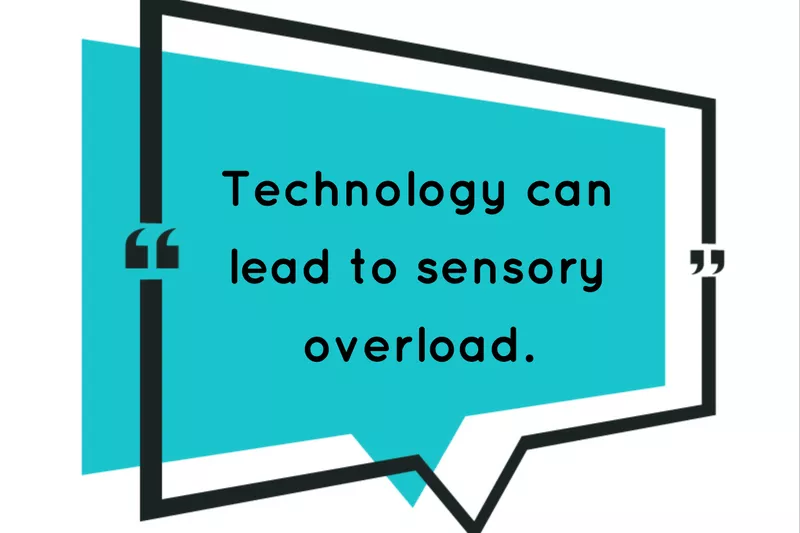
On the contrary, too much screen time can actually cause anxiety to soar. While technology can be a wonderful tool and even help us in many ways, it can also lead to sensory overload.
We are constantly connected, and too much connection sometimes means we don’t let our minds rest enough. While it can be tempting to pick up our phones every few minutes to check our email or read the latest breaking news, a healthy amount of screen-free time is good for the soul, even though it’s hard to detach.
We use our devices for everything from work to staying connected with friends. Try a screen-free hour (especially before bed, given screen time close to sleep time can negatively impact how much rest we get) ,and see how you feel. Experts agree that you’ll probably feel less anxious.
Find Out What Triggers You
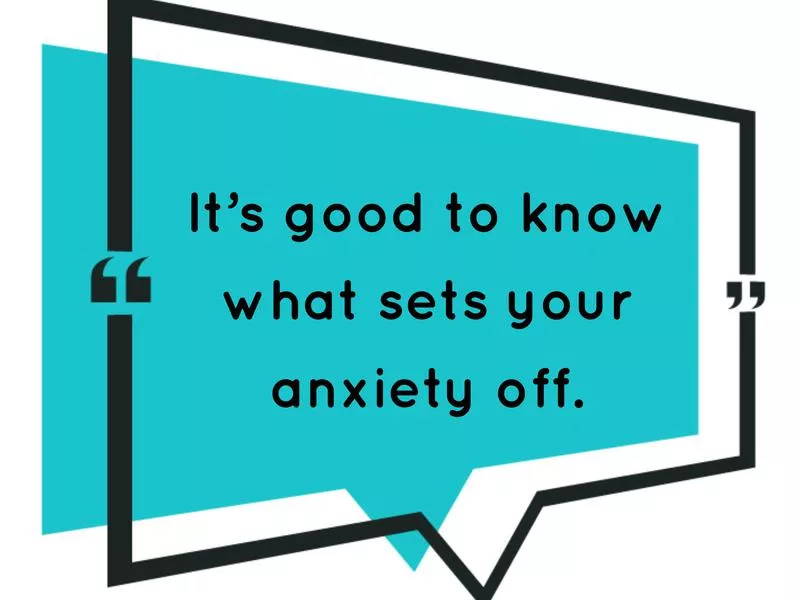
If you’re someone who suffers from even mild anxiety, it’s good to learn what sets you off. Is it walking into a room full of people you don’t know? A certain type of work assignment? A house full of kids making a mess? If you know what triggers your anxiety to spike, you can find simple ways to work around them.
No, you can’t avoid all social functions, but you can take steps to help you get through them. For example, if you have an event coming up that you’re nervous about, make sure you exercise and get a good night’s rest beforehand. Or, practice a mantra before walking into a situation that overwhelms you. Plan ahead for the work assignments you know tend to overwhelm you by giving yourself more time to focus.
And while you can’t throw your kids out if they’re driving you crazy, you ask for help, schedule playdates or practice taking alone time when you need it. Practice taking five or 10 minutes to yourself when you’re overwhelmed as a much better alternative than losing your cool and one that’s easier on your kids, too.
Get Outside
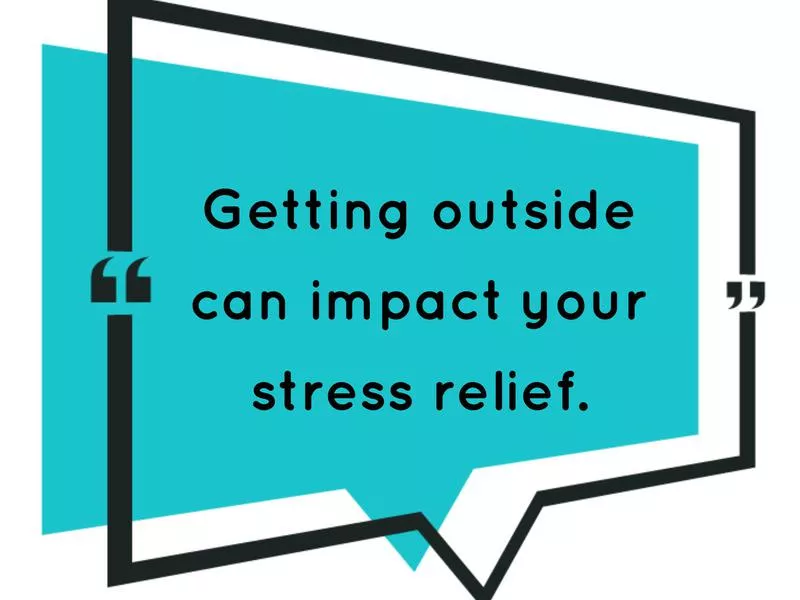
Especially if you’re used to being cooped up in an office all day or staring into a screen, getting outside can have huge impacts on your stress relief. Being in nature can have profound impacts on our sense of calm, scientists have found. A 2010 study found that individuals who spent time walking in a forest had lower levels of cortisol (the stress hormone) afterwards than those who walked through a city.
Taking a walk often means taking a break, too, whether from work or your daily tasks. That alone can bring a bit of calm to an otherwise tense day.
Take Deep Breaths and OM
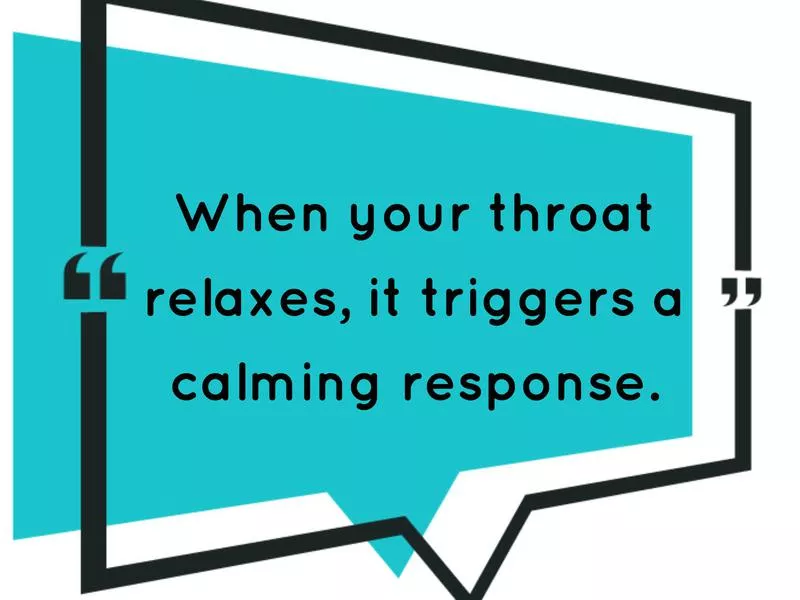
The practice of taking slow, deep breaths down into your belly, then exhaling out (often used during yoga) can have calming effects. But OMing — taking a deep breath and letting out the long, low sound of “oooooom” — can, too.
That’s because the gentle vibrations when making the noise can relax the muscles of the throat, which are often the first to tense when we start to feel overwhelmed. When your throat relaxes it triggers a calming response in your brain, too. So, OM away.
Invest in Massage, Acupuncture or Reiki
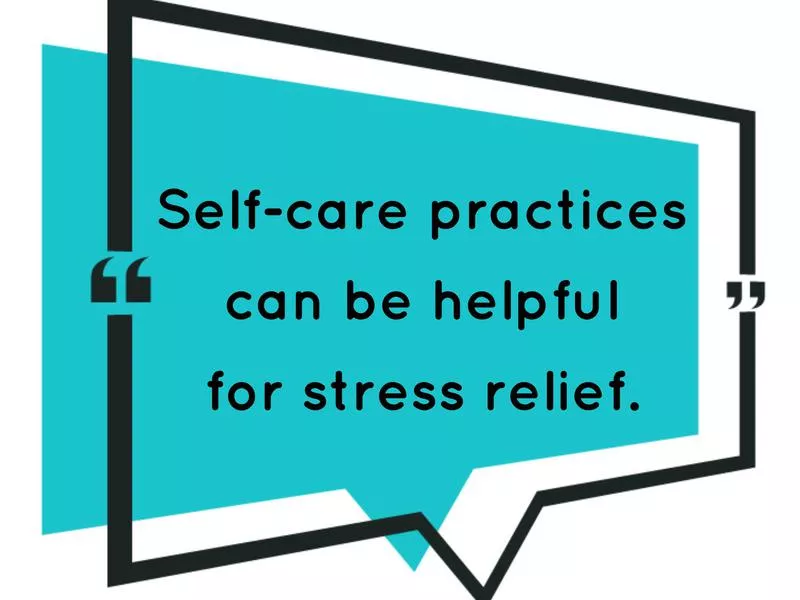
Self-care practices such as massage, acupuncture and reiki can all be helpful for stress relief. While most of us know the feel-good vibes we get when walking out of a massage, acupuncture and reiki are lesser-known practices that have a similar effect.
Acupuncture, which uses tiny needles inserted gently into the skin, can help relieve tension and lower stress levels. Reiki is a form of energy healing, which is said to balance energy and bring back calm, focused energy in lieu of stress. When using alternative therapies such as these, it’s important to remember that results can vary, but many claim they work wonders at helping them find their zen.
Visit a Therapist
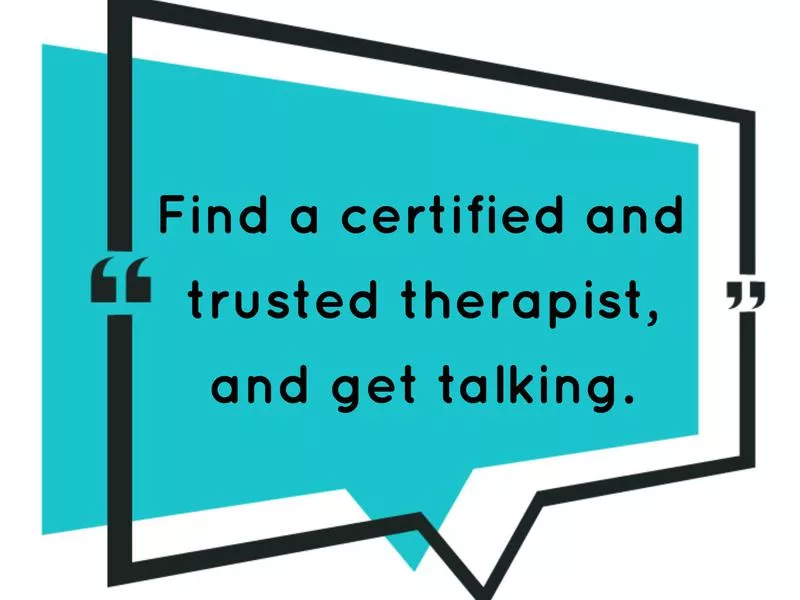
While alternative therapies are wonderful, talk therapy is important and should never be underused. Sometimes, you simply can’t keep all the thoughts in your head, and you need to let them out. So, find a certified and trusted therapist, and get talking.
Working through whatever is on your mind with a trained professional is one of the best forms of stress relief there is. Talk therapy can be pricey, but it is frequently covered by insurance. If not, you can find a Skype or online therapist for about a fraction of the price you’d pay for an in-person meeting.
Get Your Best Sleep
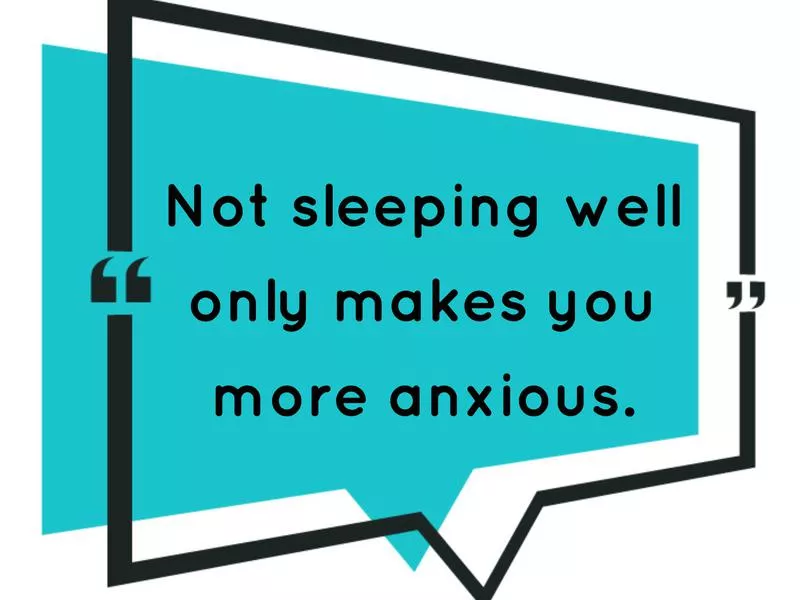
When you’re overstressed anyway, it’s hard to get a good night’s rest. It’s especially hard for parents, who may have nighttime interruptions, to get quality sleep on the regular. When you’re stressed, you don’t sleep. And not sleeping well only makes you more anxious, which can become a vicious cycle.
Do everything you can to get back on track when it comes to sleeping well. Make your room dark — avoid any lights from TVs, computers or even clocks. Drink sleepy-time tea or take a magnesium supplement or melatonin, which both promote sleep. If you know you have early risers, go to bed early. Getting a good seven or eight hours a night can have huge impacts on your mood, decrease anxiety and, overall, make you feel better and more productive, which usually means, less stress.
Be Gentle With Yourself
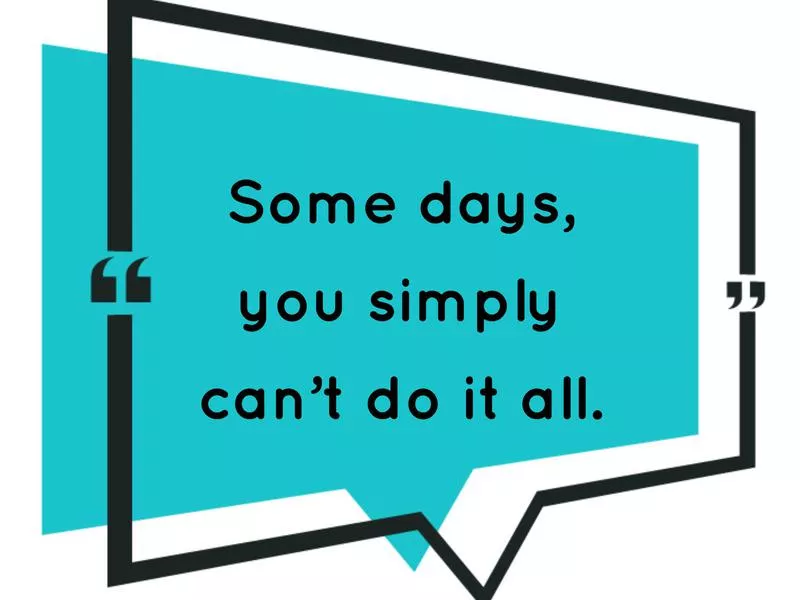
As parents, there is simply so much to worry about each passing day. But remember, you aren’t perfect and you don’t need to raise perfect people either. Be gentle with yourself and know that some days, you simply can’t do it all. You’ll fail, make mistakes and, sometimes, feel like everything is falling to pieces.
Practice focusing on the good you did today rather than your shortcomings. If you were as gentle to yourself as you were with others, your stress level would likely decrease drastically. So, let the little things go. Don’t try to do it all. And above all, be kind to yourself.